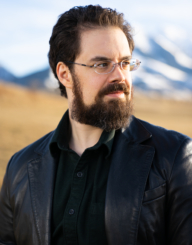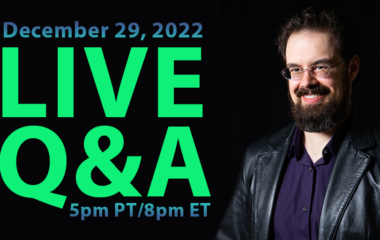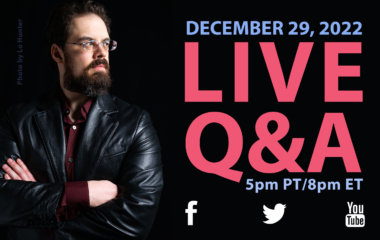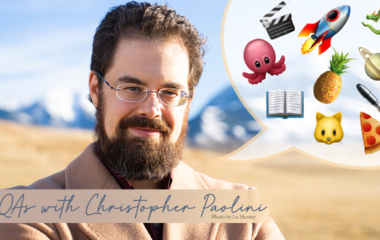
What was it like to finish the Inheritance Cycle and start moving on to another project?
Writing the Inheritance Cycle was like training for and competing in the Olympics. For over twelve years, I spent nearly every waking moment working on, thinking about, or talking about the series.
When you devote that much time to a single project, it becomes an essential part of your identity. It shapes your habits in ways both big and small and comes to define the patterns of your life with such completeness that it’s often hard to grasp the totality of its influence.
And then one day you’re done.
Even though I knew I was approaching the end of the series, even though I’d planned for and anticipated it for years, finishing it was still a shock. All of a sudden this massive thing that had been the main focal point of my life since I was fifteen was . . . gone.
The experience was both terrifying and exhilarating.
Of course, it didn’t disappear immediately. I spent the better part of a year traveling around the world to promote the fourth and final book, Inheritance, which meant I was still thinking and talking about the series.
But in time, that too came to an end, and I returned home and had to decide what I wanted to do next. Professionally, there was no question; then, as now, I knew I wanted to tell stories. Personally, though, I found myself with unaccustomed freedom from deadlines and expectations.
Faced with such an array of choices, I realized that what I both wanted and needed to do was break out of the creative box I had been living in for so long. The Inheritance Cycle had forced me to write and think in certain ways; if I were to grow as person and an artist, I was convinced I needed to push past those self-imposed boundaries and regain the spirit of experimentation I’d had when I was a teenager.
So I drew and painted. I traveled. I worked on a mail hauberk (which is going to take a few years to finish). I messed around with a number of short stories, each in a different style. I even tried my hand at a screenplay (they’re harder than they look). And I read as many books and watched as many movies as I could.
It was surprisingly hard to move past the prose style I’d established in the Inheritance Cycle. I’d grown so accustomed to saying things in just this way, at first my brain didn’t want to do anything else. As an example: throughout the series, I tried to avoid words or phrases derived from modern sources, such as “backpedal” or “end of the line”. Now, to be able to employ the full range of English as I normally use it was tremendously rewarding. It granted me access to whole modes of expression that, previously, I’d walled off in my mind.
Once I had recharged my creative batteries, I knew I was ready to tackle something bigger. Much bigger. So I began researching the information I’d need. For nine to ten months I scoured the internet for details obvious and obscure. I called and e-mailed professors around the world. I spent days hashing over various world-building issues with my friends and family. All so that I could do justice to the setting I had decided on for my next story.
And then, only then, did I start to write.
So far, it’s been a blast. The story is science fiction—one of my first loves, along with fantasy—and full of aliens, spaceships, lasers, strange new planets, and explosions. You know, fun stuff. At the same time, I’m hoping that the story will stir people’s emotions, as well as give them a few interesting things to think about. As with all creative endeavors, there’s no guarantee of success. But I think it’s going to end up being pretty awesome.
Of course, I’m biased.
In the long term, I do intend to return to the world of the Inheritance Cycle. However, for now, I’m enjoying stretching my wings and inventing a whole new universe for readers to explore. The stars are our future, and while we may never visit them ourselves, at least we can visit them in our dreams.
~ Christopher
* Editor’s note: This article was previously published on the Barnes and Noble Book Blog on July 16, 2014.




